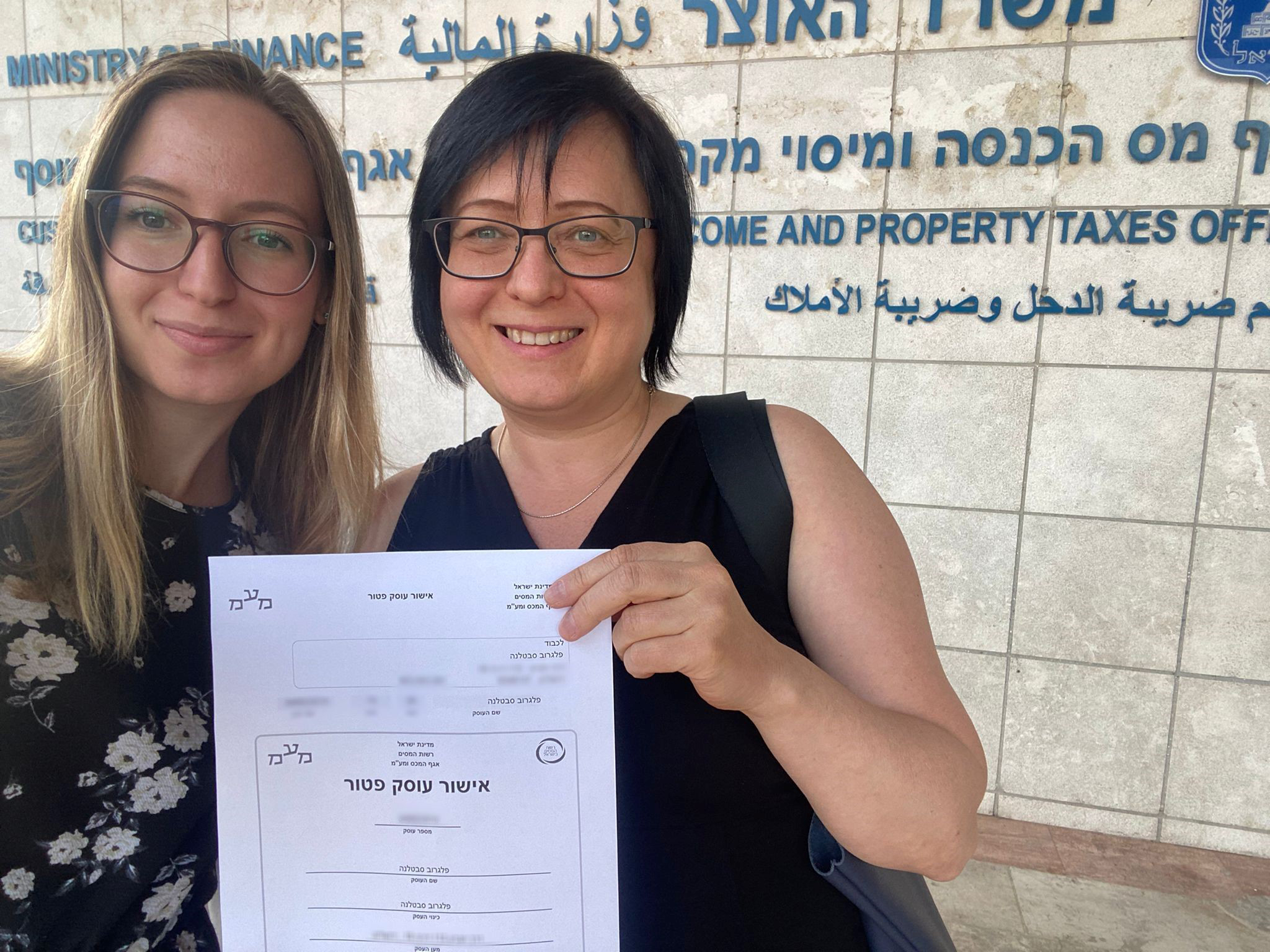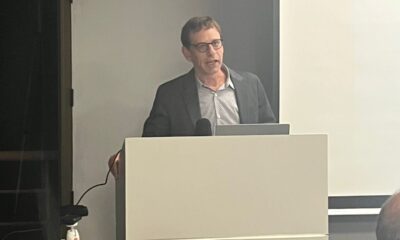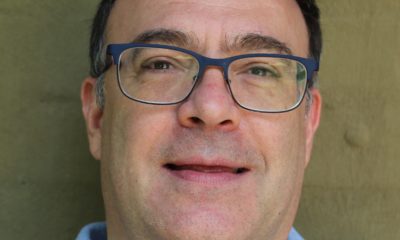
World

“Don’t forget us”, Jews of Ukraine urge one year on
Published
1 year agoon
The life of Sana Nelina, who grew up in the Jewish community of Odesa, was forever changed on 24 February 2022 when Russia invaded Ukraine, unleashing a war that’s still raging one year on.
Nelina has called on the world not to forget the horror that she and her fellow Ukrainians have endured, and to help put an end to an invasion that should never have happened. Living on her own in the Ukrainian port city, Nelina, who is in her 40s, doesn’t know what the next second, minute, hour, or day will bring for her or her people.
“This year taught us many new skills – like how to distinguish the sounds of a missile from our air defence,” she told the SA Jewish Report this week. “We can find the safest places in every corner of Odesa. They say that there are no more children in Ukraine because every child had to grow up fast. They lost almost three years of their childhood because of COVID-19, and today, they are living through a war.”
South African filmmaker Ronnie Apteker was living in Kyiv when war broke out. He had to flee the city in the first week of the war with his wife and toddler son. Just before the anniversary of the invasion, he wrote on his blog, “We were in shock for a long time. This evil war sometimes feels like it will never end, and then there are days where we are filled with optimism. We believe we’ll return to our home but we have no clue when that might be, and that’s an unsettling feeling.”
Apteker and his family are now in South Africa. “I sometimes think of my stuff in our apartment in Kyiv. I was hoping the Bunster [his nickname for his child] would one day explore some of these things. But what if we cannot return? Do we start again?”
Speaking to the SA Jewish Report from the Joint Distribution Committee office where she was able to connect to the internet, Nelina said, “I’m not sure if there’s power in my apartment. Last month, we had power for two to four hours a day. This means you need to be ready to choose what you need more: to charge your cellphone and laptop; do laundry or cook; do housework or homework with your children; warm yourself; or fill bottles with water. You don’t know exactly when you will have those two hours because there’s no exact timetable.”
As her elderly father lives in Mykolaiv, two hours from Odesa, which was bombed during the first days of the war, she hasn’t been able to see him since the war began.
Though Nelina has stayed in Ukraine, many Jews have fled. “More than 70 000 people have come to Israel as a result of the war. It’s a staggering number,” says Dov Lipman, former Knesset member and the founder and chief executive of the organisation Yad L’Olim. “We’re working morning, afternoon, and night to help these olim with bureaucracy, to find a place to live, and to provide them with clothes, food, and household items.”
One unique role they play is helping professionals who are now refugees get licences, accreditations, and jobs in their field. They also host Hebrew conversation clubs for those who cannot go on ulpan because there aren’t enough ulpanim for refugees to attend.
He says olim are still coming but these days less from Ukraine and more from Russia and even some from Belarus. “Hebrew and housing are their main challenges. The government has given grants to help them financially and we’re working hard to make sure that they are renewed.”
Ilya Bezrucho, a Kyiv-based entrepreneur and representative of the National Coalition Supporting Eurasian Jewry in Ukraine, is one of the Ukrainian Jews living in Israel, “but it’s a temporary solution”, he says. “My parents are still in Ukraine and not willing to leave.”
Bezrucho has spent “90% of this year of war in Ukraine”, and says “there’s no safe place in Ukraine: a rocket attack on your city or street is just a matter of time. Once, I felt safe in Lviv [where he fled to from Kyiv when the invasion began], but the next day, rockets hit the gas station a few kilometres away. I thought Kyiv [where he returned after a few months] was secure, but on 10 October, rockets hit the city centre, killing at least nine people.”
While he was in Kyiv, his daily routine didn’t change from peace time. “The only thing that changed was that I carried all my documents in a backpack and had a bulletproof vest and helmet in my trunk in case of heavy shelling or any other urgent situation.” He and his family plan to return to Kyiv in the spring.
“The most challenging thing is to accept that the life we had before 24 February 2022 will never again be possible,” Bezrucho said. “I’ve met dozens who joined the volunteer movement to help needy people. We assist the army and work together, creating initiatives to make Ukrainian victory a reality.”
On this anniversary, he says, “Partner with Jewish initiatives supporting Ukrainian refugees and people in the country. Explain to your politicians that the war in Ukraine isn’t just a local conflict. It may lead to famine in other parts of the world, including Africa, because Ukraine isn’t just the breadbasket of the world, but a prominent supplier of a number of food products.”
Rav Meyer Tzvi Stambler, the chairperson of the Federation of Jewish Communities of Ukraine, estimates that there were 400 000 Jews in Ukraine before the war. “About 30 000 left at the beginning of the war, but many have come back,” he says. He never left, although his family went to Israel until the end of the high holidays last year. “We’re now all at home in Dnipro.”
He describes the situation as tolerable, but says, “Our most important work is to help people survive. Every Jewish family needs support. People who used to give tzedakah are now asking for food packages.”
Keeping Jewish life alive is also a crucial part of his work, and “we have baked hamentashen for Purim, and will be distributing 50 000 mishloach manot.” They are also importing grape juice for Pesach, and distributing seder kits. “Our job used to be help Jews get back to their roots – only about 15% to 20% of our work was humanitarian. Now it’s the other way around.”
Life continues to be in limbo for Apteker. “We’re leaving South Africa at the end of April, and heading to Wroclaw in Poland,” he writes. “There’s a big Ukrainian community there and we can go to Kyiv by train. We believe we’ll be back in Kyiv by autumn. And if this war doesn’t end this year, we’ll have to think what to do. February 24 will be behind us soon, and I’m confident that Ukraine will still be there. Come May, we’ll hopefully be there too. I can’t wait.”
To support the Jews of Ukraine, visit www.fjc.org.ua/donate










